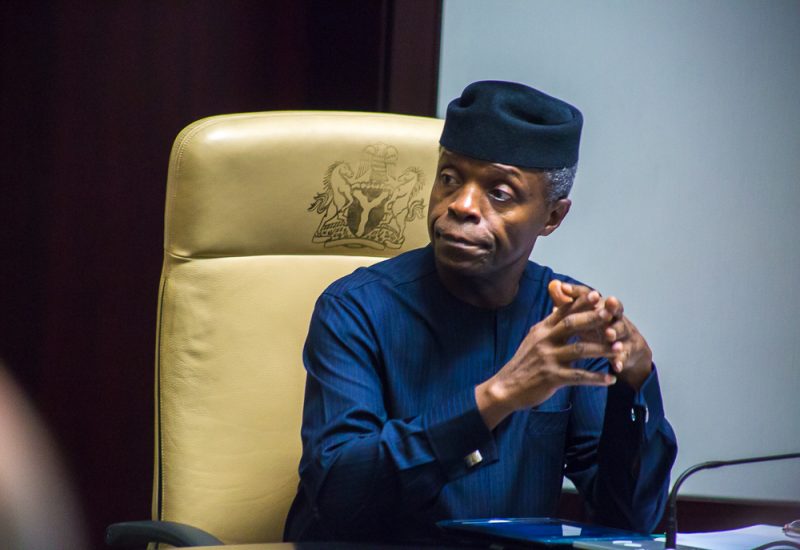Vice-President Yemi Osinbajo says the federal government cannot grab land from states in its quest to end the crisis between farmers and herders.
In his opening remark at the International Conference on “Patriotism, Security, Governance and National Development” organised by the Global Patriot Newspaper in collaboration with the Nigerian Consulate in New York, Osinbajo said the government is committed to the implementation of the National Livestock Transformation Plan (NLTP).
NLTP was developed by a consensus of governors under the auspices of the National Economic Council (NEC) which encourages ranching.
Professor Osinbajo said “the NLTP is a comprehensive strategy for addressing farmer/herder conflict essentially by encouraging interested states to establish cattle ranches.”
“The crucial point here is that no community or State is compelled in any shape or form to give land for ranching. Ranching is essentially a business. NLTP is not a land grab in any way. Every state is completely responsible for its land. The Federal Government cannot go to any state and take any land.
“Already 22 States have indicated interest, and pilots with the support of the Netherlands government, are ongoing in 4 states of Adamawa, Nasarawa, Plateau and Gombe. If we are able to execute the NLPT, we will be able to see an end to the farmer-herder conflict because the goal is to make livestock breeders more sedentary and derive more financial benefits,” he said.
The Vice President added that steps are being taken to address the perennial crisis between farmers and herders.
He said the task of building a society desired by all Nigerians was not only exerting but also requiring the contribution of all Nigerians as the challenge for everyone is “to build, not to destroy, to add to, not to take away”.
The Vice President, while speaking on the need for citizens to unite in building a better society, said “the task of nation-building is exerting and may even appear messy as the process continues, especially in a multi-ethnic and multi-religious nation like Nigeria. It challenges all values, patience and tolerance of citizens, it may even be costly. It is a challenge thrown to everyone, to build, not to destroy, to add to, not to take away.”
Among other participants at the meeting were Nigeria’s Permanent Representative to the United Nations, Prof. Tijjani Bande; President of NIDO, Dr Kazeem Bello; and Femi Falana, SAN.



